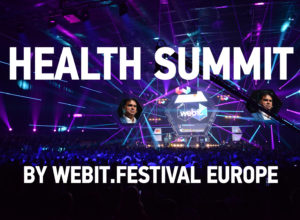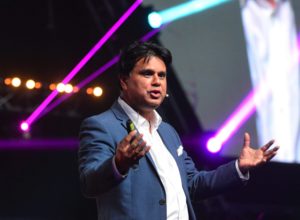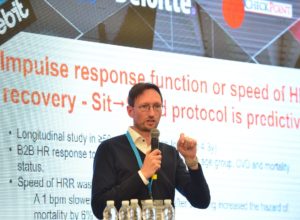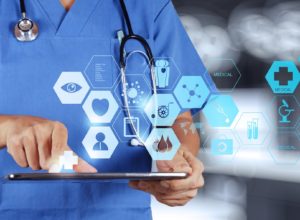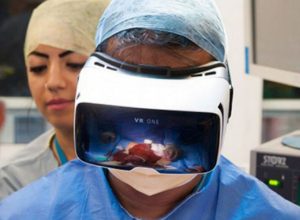Tag: digital health
Announcing Webit.Health Summit & Expo
 Webit.Health Programme Commitee is chaired by Prof. Shafi Ahmed - the most watched surgeon in the human history and world’s renown innovator in VR/AR
Webit.Health Programme Commitee is chaired by Prof. Shafi Ahmed - the most watched surgeon in the human history and world’s renown innovator in VR/AR
 Daniel Kraft
Physician-Scientist. Chair for Medicine at Singularity University & Founder & Chair, Exponential Medicine
Daniel Kraft
Physician-Scientist. Chair for Medicine at Singularity University & Founder & Chair, Exponential Medicine |
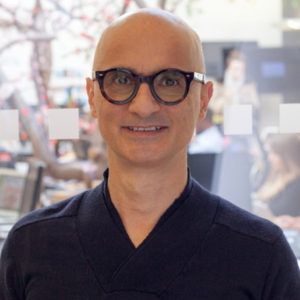 Ali Parsa
CEO,
Babylon
Ali Parsa
CEO,
Babylon |
|
 Joseph Elborn
President,
European Health Parliament
Joseph Elborn
President,
European Health Parliament |
 Junaid Bajwa
Global Lead for Strategic Alliances, Digital Centre of Excellence at Merck & Co
Junaid Bajwa
Global Lead for Strategic Alliances, Digital Centre of Excellence at Merck & Co |
|
 Dan Vahdat
Founder & CEO,
Medopad
Dan Vahdat
Founder & CEO,
Medopad |
 Anu Acharya
CEO,
Mapmygenome
Anu Acharya
CEO,
Mapmygenome |
Agenda, Impact and knowledge areas:
- AI
- VR/AR, Imaging
- Exponential Medicine
- Personalized Medicine
- Genomics and biotech
- Well-being and Longevity
- Marketing & Communication in healthcare
Who attends?
- Healthcare, pharma and biotech Innovators
- Founders and new disruptive healthcare, pharma and wellness entrepreneurs
- healthcare marketing agencies
- Investors
- Governments, Policy makers and regulators
Partners (sponsors and exhibitors)
Webit.Health is proud to be supported by some of the world leading industry innovators including:
World's Biggest Startup Challenge
Webit.Health is the place to meet the hottest startups and founders of health, biotech, pharma and wellbeing starups around the world! Over 4000 startups apply for the Webit.Foundation grants. A significant number of them are in the health domain. Join Webit to withness the future of healthcare. If you are founder/work for disruptive startups - apply below and get a free exhibition slot and opportunity to pitch at the Webit.Health Stage in front of the global leaders and investors. Stay tuned for the BIG winers of the Webit.Heath Awards in 2019.
The winner of the special Webit.Health Awards 2018 was Prof. Shafi Ahmed, the 2019 Chair of Webit.Health Programme Committee and global role model for and innovators.
See more information here
See you at Webit.Festival Europe over 13-15 May 2019 in Sofia.
Warm regards,
The Webit Team
Stay tuned for the BIG winers of the Webit.Heath Awards in 2019.
The winner of the special Webit.Health Awards 2018 was Prof. Shafi Ahmed, the 2019 Chair of Webit.Health Programme Committee and global role model for and innovators.
See more information here
See you at Webit.Festival Europe over 13-15 May 2019 in Sofia.
Warm regards,
The Webit Team The future of Health at Webit.Festival Europe 2018
Health is so important to all of us, it requires change. How do we create a better future for all of us?
In healthcare around the world there's change in quality, sometimes poor access. How do we enable technology to deliver the things that we all aspire? - to make healthcare free for all at a high quality. That's the role of Health.Summit chaired by prof. Shafi Ahmed. Medicine is the perfect example of how the fourth industrial revolution is changing all of us.What about Europe?
We need data and insights on the health of European citizens, on how we organize care, and on how much our health systems cost. The EC joined forces with the OECD and the Observatory on Health Systems and Policies, and analyzed each EU country. The reports show that our healthcare needs to be more effective, accessible and resilient. For example, 80% of healthcare costs are spent on treating chronic diseases, but just a fraction on prevention. Shifting on prevention not only tackles inequalities in health and quality of life, but also offers an enormous economic return. Today, one in four patients have no access to a family doctor or a local health center, and have to go to an emergency department. With available and affordable primary care we can avoid unnecessary hospital admissions. Too often patients are searching for the best possible treatment in a maze of scattered health services. Integrated care, where all care providers work more closely together delivers better results for patients. "The state of Health" in the EU links the strengths and challenges in the different European countries to common health priorities across the EU. The reports help policymakers make relevant and efficient choices so all of us can enjoy a healthy future.Teaching tens of thousands of people together to improve the education resources.
As a global surgeon prof. Shafi Ahmed thinks about how to scale the learning and education around the world. Now we are connected with cables, by phones and satellites. And because we are connected now we can reach far more. We have social media to connect with people. We are changing the paradigm of the doctor-patient relationship using AI, chat bots, deep machine learning, avatars and holograms. In the next 2-5 years we are going to communicate in a different way. The human interaction will little bit disappear because it is too expensive.
I thought "How can I connect with people around the world? Let's connect my avatar with other avatars in America, in India. Can they come to my theater together in this virtual space? They call me the Virtual Surgeon.
[embed]https://www.youtube.com/watch?v=-4T49_zz3HA[/embed]
Imagine someone operating on the other side of the globe, calling you and saying: "I need some advice, can you come?" Plane travel - too long, inefficient. What about transporting yourself as a hologram?
Shafi Ahmed has been spending a lot of time talking about how we use technologies in a way that we haven't done before. And at Webit.Festival Europe 2018 he announced that he and Mr. Martin Dockweiler are launching the first digital hospital in South America. The hospital will be called SAMD (Shafi Ahmed Martin Dockweiler) University Hospital. It will have a center of innovation, research, teaching. They will be testing new technologies.
The future is not today or tomorrow. It's happening all around us as we speak. And that is the future we create for ourselves.Missed the 2018 edition of Webit.Festival Europe? Don’t miss the 2019! Get your super early bird 2in1 tickets – 2 for the price of 1 here!
Welcome the new generation of integrated hybrid medical devices
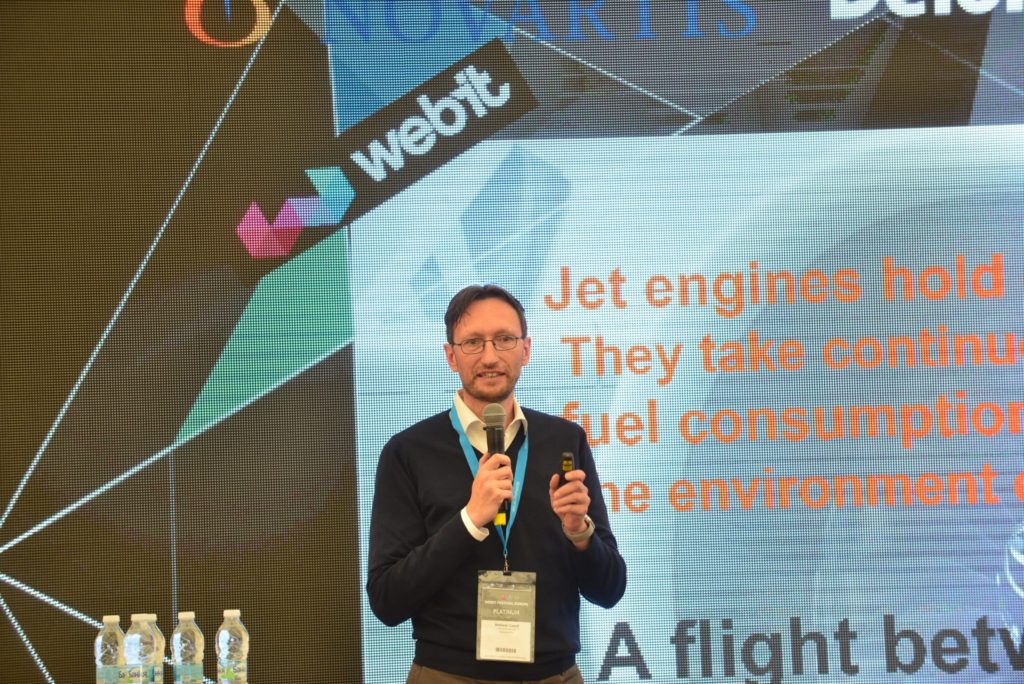 The Founder & CEO of Biovotion Dr. Andreas Caduff[/caption]
Today’s real game changer - GDPR is a regulation which protects the privacy of people’s data within the European Union. Patients have more control over their personal data and the right to ask their data to be deleted or exported so they can bring it to another vendor. Of course, the main focus is on privacy and the prevention of data leaks in case of which serious penalties exist.
Biovotion created Everion - a device which measures many parameters among which heart rate, number of steps, pulse wave analysis and many more. A well-known fact is that the longer we walk, the longer we will live. What makes Everion special is that it is a device that can be worn not only during our workout, but also prior and after it, pretty much 24 hours in a day.
After Biovotion developed the device which gathers and stores a lot of data, they launched an app. The company didn’t stop there - in fact, the next step towards secure data storage and the ability to export functionalities was the cloud. Finally, in order to create a functioning ecosystem out of this medical device, Biovotion needed a communication platform. The truth is, only when all necessary elements are present, it is possible to develop a sustainable business that creates value.
Medical wearables gather a lot of data - the health and fitness data together with the true medical data can be combined to get the most accurate results of what is happening inside our bodies.
The Founder & CEO of Biovotion Dr. Andreas Caduff[/caption]
Today’s real game changer - GDPR is a regulation which protects the privacy of people’s data within the European Union. Patients have more control over their personal data and the right to ask their data to be deleted or exported so they can bring it to another vendor. Of course, the main focus is on privacy and the prevention of data leaks in case of which serious penalties exist.
Biovotion created Everion - a device which measures many parameters among which heart rate, number of steps, pulse wave analysis and many more. A well-known fact is that the longer we walk, the longer we will live. What makes Everion special is that it is a device that can be worn not only during our workout, but also prior and after it, pretty much 24 hours in a day.
After Biovotion developed the device which gathers and stores a lot of data, they launched an app. The company didn’t stop there - in fact, the next step towards secure data storage and the ability to export functionalities was the cloud. Finally, in order to create a functioning ecosystem out of this medical device, Biovotion needed a communication platform. The truth is, only when all necessary elements are present, it is possible to develop a sustainable business that creates value.
Medical wearables gather a lot of data - the health and fitness data together with the true medical data can be combined to get the most accurate results of what is happening inside our bodies.
“The biggest value that we derived today is data gathered individually.”, Caduff said.Everion’s interface enables consumers to understand very quickly what is happening and what the gathered data actually means. The device allows consumers to monitor their physiological condition continuously which means they get the full picture of how their body functions. Making this information accessible to people encourages them to take care of themselves and manage their health situation. The new era of physiological monitoring introduces hand attachments capable of monitoring the heart rate variability. These medical devices tolerate motion and are very easy to use. The goal is to benefit people by making accurate measures and communicate them with a user-friendly interface. You can watch his full lecture here: If you want to keep up with the latest trends in the world of digital economy and technology, then Webit.Festival is the right place for you. Visit our website and book 2 in 1 of our Super Earlybird tickets for Webit.Festival Europe 2018. Feel the Webit vibe with some of the best photos from this year’s event! [easingslider id="4954"]
